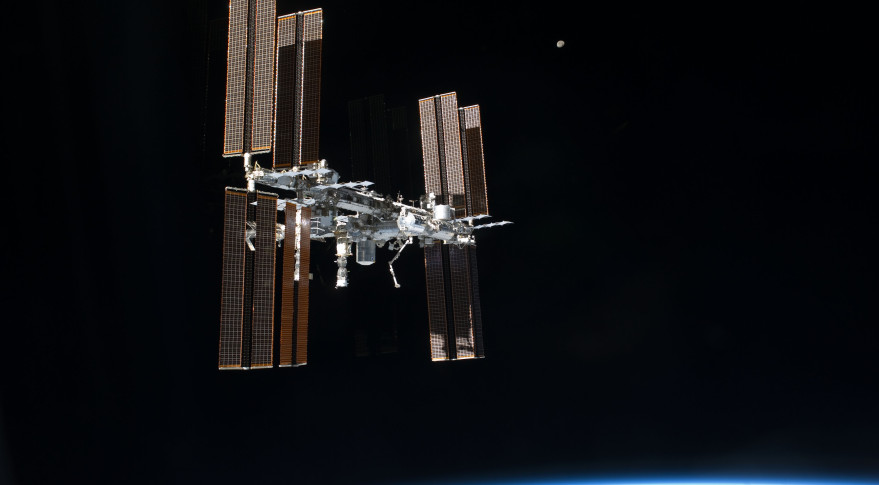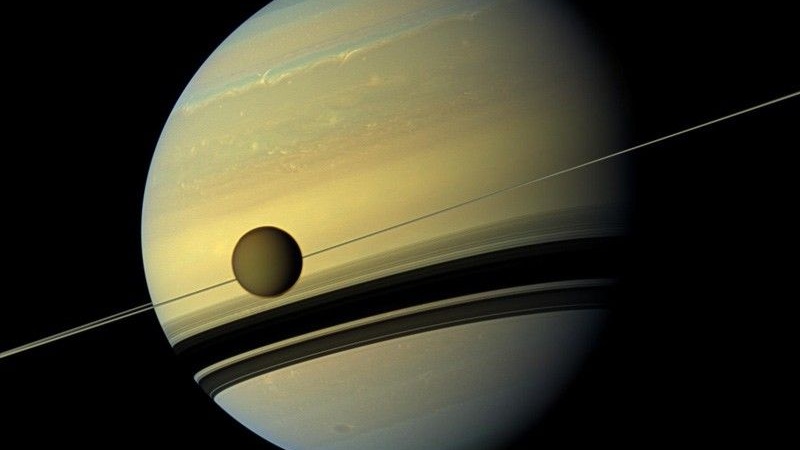Senators Press Administration for ISS Transition Plan

Breaking space news, the latest updates on rocket launches, skywatching events and more!
You are now subscribed
Your newsletter sign-up was successful
Want to add more newsletters?

Delivered daily
Daily Newsletter
Breaking space news, the latest updates on rocket launches, skywatching events and more!

Once a month
Watch This Space
Sign up to our monthly entertainment newsletter to keep up with all our coverage of the latest sci-fi and space movies, tv shows, games and books.

Once a week
Night Sky This Week
Discover this week's must-see night sky events, moon phases, and stunning astrophotos. Sign up for our skywatching newsletter and explore the universe with us!

Twice a month
Strange New Words
Space.com's Sci-Fi Reader's Club. Read a sci-fi short story every month and join a virtual community of fellow science fiction fans!
CAPE CANAVERAL, Fla. — Two senators who have previously expressed opposition to a proposal to end NASA funding of the International Space Station in 2025 have sent letters to NASA and the White House asking for details about an overdue ISS transition report.
In a Feb. 27 statement, Sens. Ted Cruz (R-Texas) and Bill Nelson (D-Fla.) released letters they sent one week earlier to Robert Lightfoot, acting administrator of NASA, and Mick Mulvaney, director of the Office of Management and Budget, asking for the status of a report on the future of the ISS mandated by the NASA Transition Authorization Act of 2017.
That act, signed into law in March 2017, required NASA to develop a "transition plan" for the ISS for shifting its operations from the current regime to one "where NASA could be one of many customers of a low-Earth orbit non-governmental human space flight enterprise." Other provisions called for cost estimates of ISS operations to 2024, 2028 and 2030, and "an evaluation of the feasible and preferred service life" of the ISS beyond current plans to operate the station through 2024. [Presidential Visions for NASA Throughout History]
The act required NASA to deliver that report by the beginning of December 2017. However, Cruz and Nelson noted in their letters that NASA has yet to provide that report to Congress. In the letter to Lightfoot, the senators asked for the date that report would be completed, all preliminary drafts of the report, a list of those who have been consulted in development of the report and any analysis used to prepare the section of the administration's fiscal year 2019 budget request calling for an end of NASA ISS funding in 2025. In addition, it directed NASA to preserve records associated with development of the transition report.
The letters, dated Feb. 20, directed NASA to comply with the request by the end of the day Feb. 27. It wasn't immediately clear what response, if any, NASA provided by the deadline.
NASA and administration officials have previously indicated that the transition plan remains under development, but didn't explain the reasons for missing the deadline established by law. "Congress has asked for us to generate a transition plan and a direction, and that and the budget submit will be coming out soon," Scott Pace, executive secretary of the National Space Council, said in a Feb. 7 on-stage interview at the Federal Aviation Administration's annual Commercial Space Transportation Conference.
An internal NASA document obtained by SpaceNews shortly before the Feb. 12 release of the budget proposal, outlining the key issues that transition plan would address, stated that the final version of the report "is expected to be released this spring."
Breaking space news, the latest updates on rocket launches, skywatching events and more!
Cruz and Nelson said the language in the 2019 budget proposal seeking to end NASA funding of the ISS in 2025 remained "concerning" to them, leading them to seek the status of the transition plan.
"While we have been strong proponents of the U.S. commercial space sector, prematurely ending direct U.S. Government funding of ISS could have disastrous consequences," they wrote. "The future of ISS should be determined by the emergence of a viable and proven commercial alternative and the needs of our national space program."
Even before the official release of the budget proposal, both senators opposed plans to end the ISS, or at least NASA funding of it, in the mid-2020s. "If the administration plans to abruptly pull us out of the International Space Station in 2025, they're going to have a fight on their hands," Nelson warned in a Jan. 25 statement.
"We have invested massively in the ISS. It has produced enormous benefits to the United States and the world, and we should use that asset as long as it is technologically feasible and cost-effective to do so," Cruz said at the FAA conference Feb. 7. "As long as I'm chairman of the science and space subcommittee, the ISS will continue to have strong and bipartisan support in the United States Congress."
Despite the budget proposal's offer to provide $150 million in fiscal year 2019, and $900 million over five years, to support development of commercial facilities or other capabilities in low Earth orbit to succeed the ISS, some in industry remain concerned about impacts from any potential commercialization or retirement of the ISS.
"I think there's going to need to be a lot of thought of what commercialization of the ISS really is," said John Mulholland, vice president and program manager of Boeing's commercial crew program, during a panel discussion at the 45th Space Congress here Feb. 27. He said any ISS transition should not be tied to a specific deadline, citing the experience from the retirement of the space shuttle. "I think it's important from an ISS standpoint to tie the retirement to its end of useful life, and when we're ready as a country and as an agency to go do the next thing."
This story was provided by SpaceNews, dedicated to covering all aspects of the space industry.

Jeff Foust is a Senior Staff Writer at SpaceNews, a space industry news magazine and website, where he writes about space policy, commercial spaceflight and other aerospace industry topics. Jeff has a Ph.D. in planetary sciences from the Massachusetts Institute of Technology and earned a bachelor's degree in geophysics and planetary science from the California Institute of Technology. You can see Jeff's latest projects by following him on Twitter.

